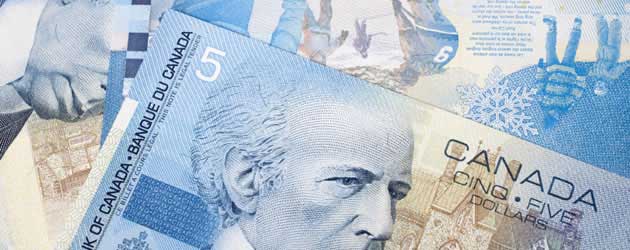 Sterling has generally trended lower against its major peers over the past few days in the aftermath of a dovish International Monetary Fund report. A lack of Canadian data has allowed the ‘Loonie’ (CAD) to soften as it tracked the US Dollar downtrend. Tuesday has seen a continuation of Sterling softness after inflation data printed poorly. The Canadian Dollar, meanwhile, has strengthened off the back of improved sentiment towards the US Dollar.
Sterling has generally trended lower against its major peers over the past few days in the aftermath of a dovish International Monetary Fund report. A lack of Canadian data has allowed the ‘Loonie’ (CAD) to soften as it tracked the US Dollar downtrend. Tuesday has seen a continuation of Sterling softness after inflation data printed poorly. The Canadian Dollar, meanwhile, has strengthened off the back of improved sentiment towards the US Dollar.
The Pound Sterling to Canadian Dollar exchange rate is currently trending in the region of 1.7883.
A report from the IMF turned the currency market on its head as the institution suggested that global economic growth has slowed and may never reach pre-crisis levels. Despite the report outlining the problematic nature of prolonged low interest rates, traders have pared their bets on the timing of a Bank of England benchmark rate revision.
‘The market spent the first half of the year getting excited about how quickly the BOE might have to hike,’ said Daragh Maher, a foreign-exchange strategist at HSBC Holdings Plc in London. ‘Now they are having to delay those expectations. The real surprise is that there has not been an even bigger Sterling selloff in response to this sizable downside surprise.’
The report was also detrimental to the Canadian Dollar as it forced traders to adopt risk aversion strategies. A softened US Dollar compounded ‘Loonie’ losses as the commodity-driven currency tracked the Dollar downtrend.
The Pound Sterling to Canadian Dollar exchange rate has fallen to a low today of 1.7883.
A disappointing set of British data publications has accelerated Sterling losses on Tuesday. The Year-on-Year Consumer Price Index was forecast to dip from 1.5% to 1.4%, but the actual result dropped to 1.2%. The Core CPI also declined beyond the median market forecast, printing at 1.5%.
Inflation has been a long-term issue for the British economy, especially the miscorrelation between inflation and wage growth. The Bank of England has targeted inflationary issues as the main hurdle to jump in order for them to safely hike rates. Given that the CPI has shown inflation to be moving away from the 2.0% target, it is very unlikely that the BoE will surprise economists with a sooner-than-anticipated rate revision.
A complete absence of Canadian data on Tuesday has actually been beneficial for the ‘Loonie’ which has tracked the US Dollar gains.
Forecast for the Pound to Canadian Dollar Exchange Rate
Wednesday’s British labour market data has the potential to provoke volatility for the Pound, although even a very positive set of results is unlikely to overshadow inflation concerns. Those invested in the Pound will be interested to see how inflation correlates with average weekly wages.
Although the Canadian data on Wednesday doesn’t have the potential to influence wider market movement, it will be of interest to those trading with the Canadian Dollar. Both the Existing Home Sales and the Teranet/National Bank HPI could initiate changes for the ‘Loonie’.
The Pound Sterling to Canadian Dollar exchange rate has reached a high today of 1.8035.
UPDATE
The Pound Sterling to Canadian Dollar exchange rate is currently trending in the region of 1.8060.
Having declined rapidly on Tuesday due to British inflation data, the Pound to ‘Loonie’ exchange rate has rebounded to a fresh weekly-high on oil price cuts. Eric Lam, writing for Bloomberg, stated; ‘Canadian oil and natural gas producers have fallen for the past 10 days, a losing streak not seen in almost two decades, on concern that supplies are overwhelming demand as growth slows in China and Europe’.
Wednesday’s British domestic data has the potential to provoke volatility for the GBP/CAD exchange rate. However, the global decline in oil prices is most likely to dictate proceedings for the commodity-correlated Canadian Dollar.

